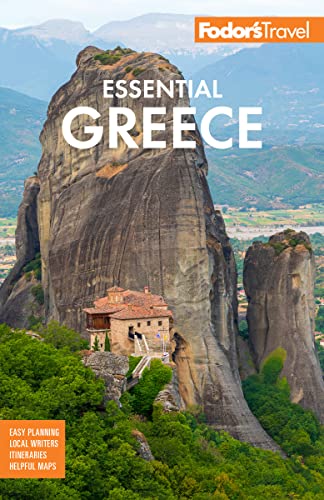The southernmost of this group of three Northern Aegean islands lies the closest to Turkey of any Greek island, separated by only 3 km (2 miles). Samos was, in fact, a part of Asia Minor until it split off during the Ice Age. Samos means "high" in Phoenician, and the abrupt volcanic mountains soaring dramatically like huge hunched shoulders from the rock surface of the island are among the tallest in the Aegean, geologically part of the great spur that runs across western Turkey. As you approach from the west, Mt. Kerkis seems to spin out of the sea, and in the distance Mt. Ambelos guards the terraced vineyards that produce the famous Samian wine. The felicitous landscape has surprising twists, with lacy coasts and mountain villages perched on ravines carpeted in pink oleander, red poppy, and purple sage.
When Athens was young, in the 7th century BC, Samos was already a political, economic, and naval power. In the next century, during Polycrates's reign, it was noted for its arts and sciences and was the expanded site of the vast Temple of Hera, one of the Seven Wonders of the Ancient World. The Persian Wars led to the decline of Samos, however, which fell first under Persian rule, and then became subordinate to the expanding power of Athens. Samos was defeated by Pericles in 439 BC and forced to pay tribute to Athens.
Pirates controlled this deserted island after the fall of the Byzantine Empire, but in 1562 an Ottoman admiral repopulated Samos with expatriates and Orthodox believers. The island languished under the sun until tobacco and shipping revived the economy in the 19th century.
Small though it may be, Samos has a formidable list of great citizens stretching through the ages. The fabled Aesop, the philosopher Epicurus, and Aristarchos (first in history to place the sun at the center of the solar system) all lived on Samos. The mathematician Pythagoras was born in Samos's ancient capital in 580 BC; in his honor, the town was renamed Pythagorio in AD 1955 (it only took a couple of millennia). Plutarch wrote that in Roman times Anthony and Cleopatra took a long holiday on Samos, "giving themselves over to the feasting," and that artists came from afar to entertain them.
Since the late 1990s Samos has become popular with European package tourists, particularly in July and August. The curving terrain allows you to escape the crowds easily and feel as if you are still in an undiscovered Eden.




